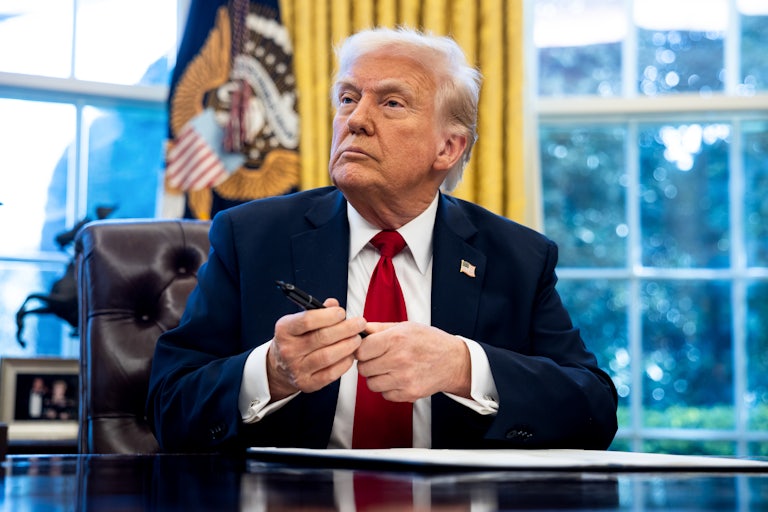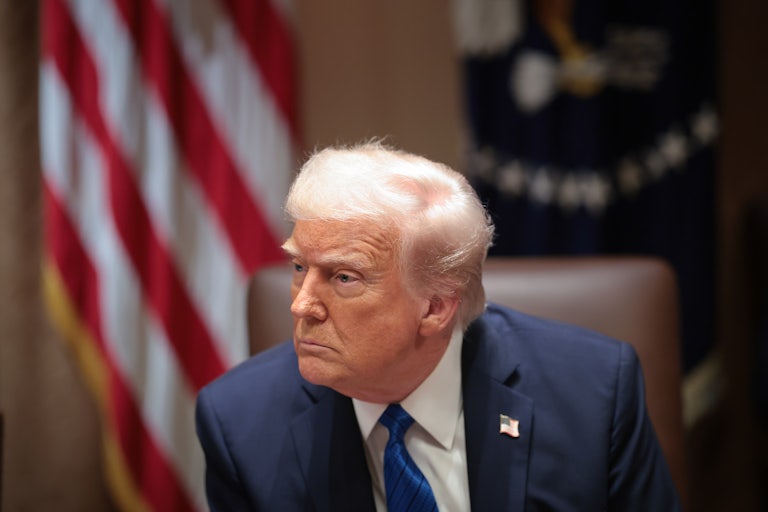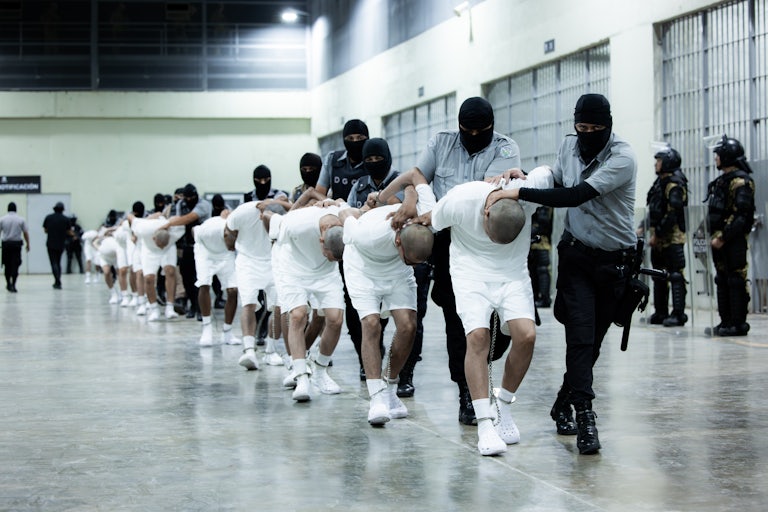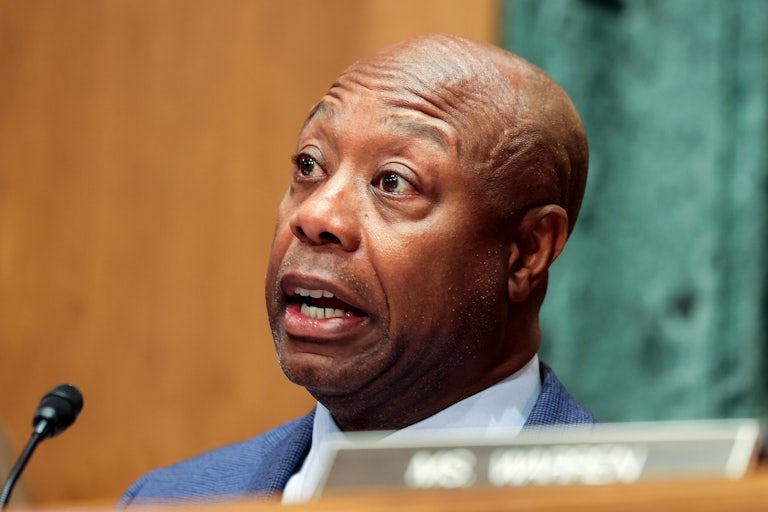Trump Brings Back Confederate Statues in One of His Most Racist Orders
Donald Trump has signed an executive order to get rid of “anti-American ideology.”
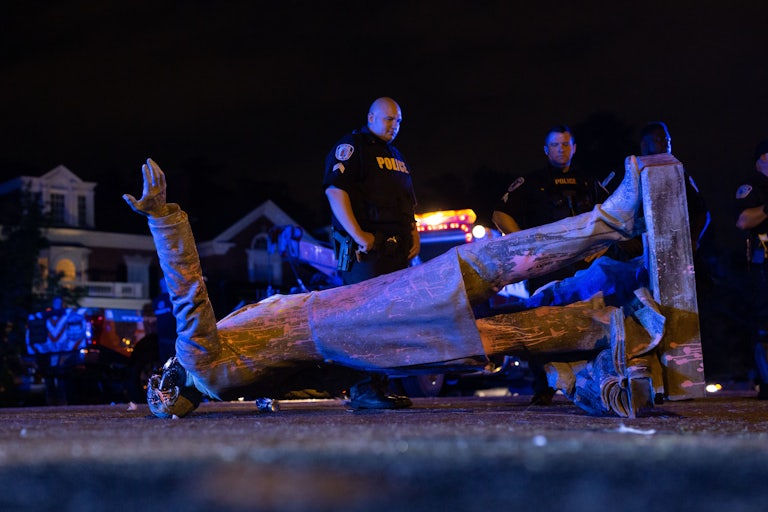
Donald Trump is bringing Confederate statues back.
On Thursday, Trump signed an executive order titled “Restoring Truth and Sanity in America” that instructs Vice President JD Vance to terminate any activity he sees as “anti-American ideology” from the nation’s cultural institutions like the Smithsonian museums and the National Zoo. The order will “prohibit funding for exhibits or programs that degrade shared American values, divide Americans by race, or promote ideologies inconsistent with Federal law; and celebrate women’s achievements in the American Women’s History Museum and do not recognize men as women.”
But hidden in the order—and missing from most headlines—is one other big change: The Secretary of Interior is to “determine whether, since January 1, 2020, public monuments, memorials, statues, markers, or similar properties within the Department of the Interior’s jurisdiction have been removed or changed to perpetuate a false reconstruction of American history, inappropriately minimize the value of certain historical events or figures, or include any other improper partisan ideology.”
In other words, statues of treasonous Confederate generals like Robert E. Lee and Albert Pike will soon be returning. Their statues were removed nationwide after the Black Lives Matter protests in 2020.
The order goes on to target the African American history museum in particular for allegedly promoting the idea that “American and Western values are harmful.”
“The National Museum of African American History and Culture has proclaimed that ‘hard work,’ ‘individualism,’ and ‘the nuclear family’ are aspects of ‘White culture,’” the order reads, referring to an NMAAHC online graphic that was posted four years ago and quickly removed, not a literal exhibit in the museum.
But the truth doesn’t matter here. Trump is appealing to the most hardcore white nationalist wing of his base by turning lauded cultural centers that raise questions and critiques of our society into spaces that blindly “celebrate American greatness.”
“Attacking the idea that telling the whole story of the United States is an ideological plot to cast the United States in a negative light testifies to a stunningly brittle insecurity about our nation and its past,” Georgetown University history professor Chandra Manning told The Washington Post. “It seems to suggest that if we allow anyone to hear the whole story of challenges that Americans have overcome, our nation will shatter. The American people are not so fragile as all that.”
